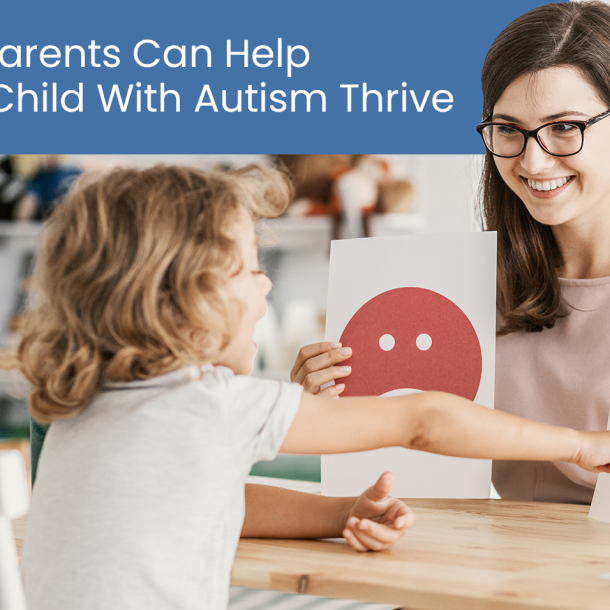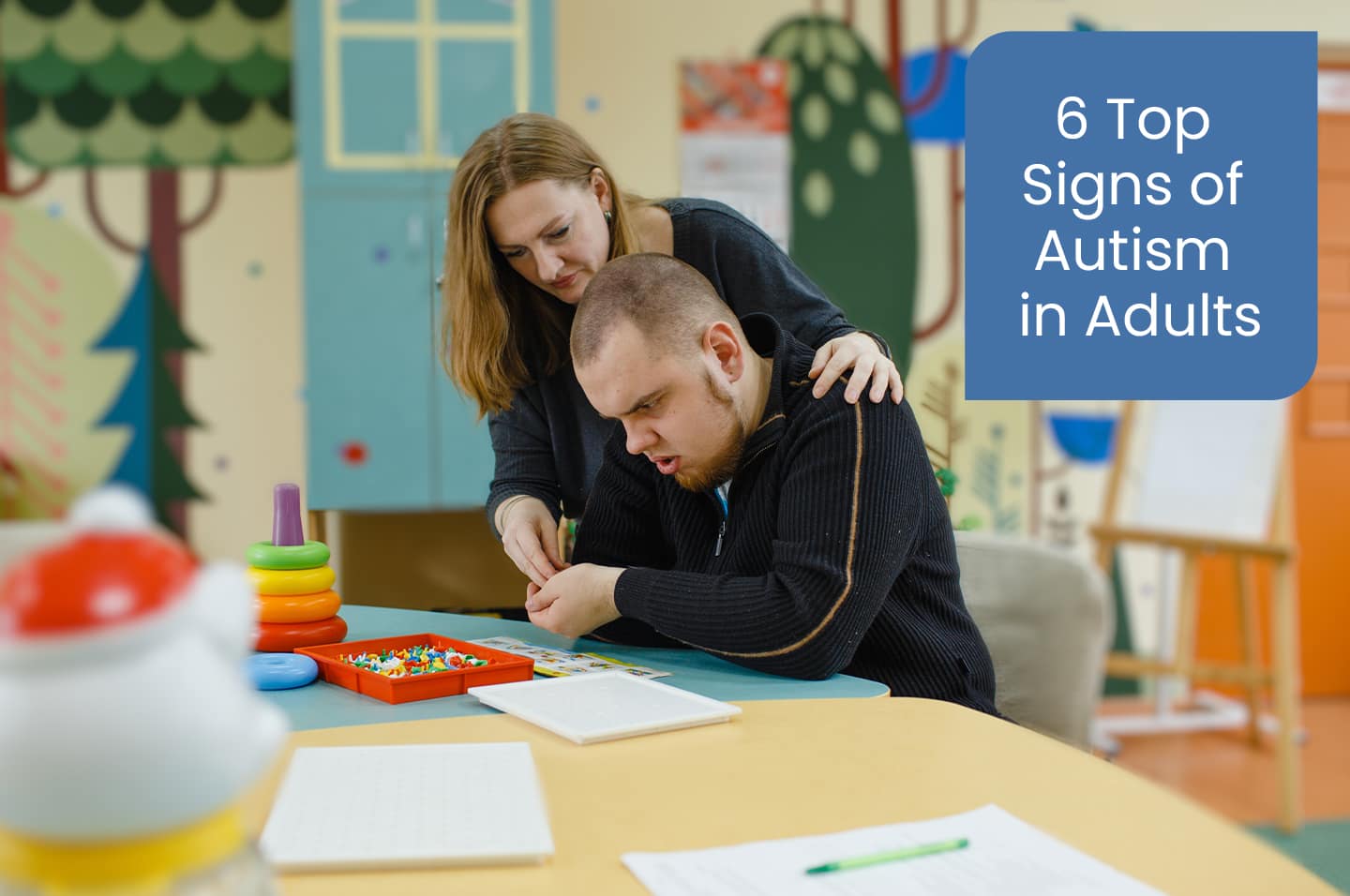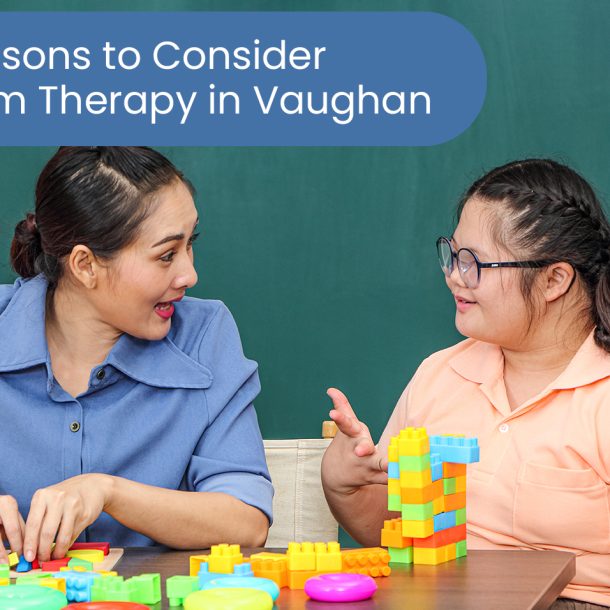
6 Top Signs of Autism in Adults
- Home /
- 6 Top Signs of Autism in Adults

The National Autism Spectrum Disorder Surveillance System (NASS) reports that 1 in 66 Canadians are identified as having Autism Spectrum Disorder (ASD). The Canadian Medical Association Journal reports that one to two percent of Canadians are autistic, meaning 135,000 people in Ontario fall somewhere on the spectrum. Yet, regardless of the age of diagnosis, autistic treatment is always available.
Autism hallmarks include repetitive/restrictive behaviour and difficulty with social communication. Yet, adult autism may present different indicators than in children. Symptoms in adults may appear as social anxiety, challenges creating conversation, and interest in a low margin of activities.
Most times, a person is diagnosed with ASD in childhood after turning four. Yet, there are autistic adults whose autism went undiagnosed—even if they exhibited more severe symptoms. For some, receiving a later diagnosis provides relief as it provides improved access to resources.
Conversely, many adults choose to live with the symptoms without assistance, making a diagnosis challenging.
Common Characteristics of Adult Autism
The information presented represents an example of symptoms found in adult ASD. Please note that adults may not exhibit all the symptoms listed and may experience additional symptoms that are not outlined.
Furthermore, there may be overlapping symptoms between autism and disorders like ADHD (attention-deficit/hyperactivity disorder). Symptoms of conditions like ADHD and anxiety can also co-exist with ASD, affecting the manifestations of autism.
The symptoms vary between individuals. Significant life changes (divorce, marriage, employment changes, parental loss, etc.) can also alter symptoms.
1. Social interaction
- Appearing rude, blunt, and disinterested in others without intending to.
- Difficulties with social interactions and making close friends.
- Prefer to be on your own.
- Anxiety or awkwardness in social situations.
- Doesn’t understand societal norms like not interrupting others or talking over them.
- Difficulty with empathy.
- Feels anxious if someone is too close or invades their sense of personal space (becomes upset if a person is too near or touches them).
- Cannot read the emotions of others.
2. Nonverbal and verbal interaction
- Taking things like common colloquialisms (sayings) literally.
- Doesn’t understand sarcasm.
- No or diminished inflection while speaking (flat tone).
- Difficulties deciphering subcontexts like body language and facial expressions.
- Challenges with expressing emotion.
- Avoids eye contact.
3. Restrictive and/or repetitive behaviour
- Generating the same daily routine and becoming upset or anxious if it is altered.
- Notice patterns, tiny details, sounds, or smells others don’t experience.
- Intense interest in specific activities and subjects.
- Plans out events before participation.
- Generates involuntary noises (continual sniffling).
- Arranging items in a particular way.
4. Activities
- Enjoy solitary activities.
- Superior abilities in specific subjects like science or math.
- Strong visual or auditory learners.
- Learn things in great detail.
- Excellent long-term memory retention.
5. Sensory processing attributes
ASD adults may be hypersensitive to sensory stimulation like smells, photosensitivity, or sounds that others don’t notice.
6. Masking
Adults with ASD can camouflage their symptoms. Research indicates they may mask symptoms because they want to be accepted by others and prevent attracting attention in social situations. Other adults may mask symptoms to avoid bullying, retain friendships, or succeed at school or work.
Furthermore, adults may subconsciously mask ASD. Masking can appear subtly (e.g., instead of hand fidgeting, they use a fidget spinner). Adults can also generate a different persona by imitating the body language and speech of others while engaging in social interaction.
Adults with ASD can force themselves to engage in eye contact and be more expressive while still experiencing anxiety.
While masking may assist in navigating through social interactions, relationships, and employment, studies indicate there are adverse effects on mental health. Masking can be exhausting and draining for the person with ASD, while others report feeling misunderstood and isolated.
Autism in Females
When comparing genders, there may be a difference in ASD symptoms. Women are more prone to masking to suppress symptoms socially. They may also appear to have a more “high functioning” form of autism wherein they don’t show stereotypical symptoms, have an IQ of 70 or higher, and may not show any signs of intellectual disabilities.
However, the term is problematic as there is a lack of correlation between intellectual and cognitive functioning. A categorization like this may decrease the number of adults who receive the required support. Instead, it is pertinent that ASD is recognized on its proper spectrum by identifying subtypes based on both functionalities.
Autistic women may be more subdued, show fewer repetitive behaviours, and hide emotions. As well, they may present the following:
- Cope better in social interactions.
- Have sensory sensitivities.
- Experience sleep challenges.
- Have executive functioning challenges.
- Show issues with emotional regulation.
ASD in Males
Adult autism in men is more typical and less subtle. It is speculated that women may internalize challenges and incorporate masking to align with social norms. This coping mechanism can cause more men to be diagnosed than women.
Receiving a Diagnosis
Being diagnosed as an adult can pose difficulties because:
- Adults who weren’t diagnosed as children may exhibit milder symptoms, making it challenging to diagnose. Many individuals may never receive a diagnosis.
- Studies indicate that while the standard diagnostic tool for adult ASD (the ADOS-2) is reliable, the physician must adequately recognize the symptoms before a referral for testing.
- If the adult has coped with ASD for prolonged periods, they may be proficient at masking.
If you suspect ASD, you can also obtain accurate results by consulting your primary physician. The physician will inquire about common symptoms in childhood and the present, interact with and observe the individual (with permission) speaking to a loved one, and examine for other mental health or physical indicators that may generate these symptoms.
If no underlying conditions explain the symptoms, the physician can refer the individual to an autism therapist specialist for diagnosis.
MeRT Treatments
Once successfully diagnosed, you can undergo various autism treatments, one of which is MeRT (Magnetic e-Resonance Therapy). This groundbreaking therapy utilizes specialized equipment with gentle magnetic fields to rebalance and stimulate brain activity. MeRT is tailored to the individual through advanced imaging and diagnostics.
Contact Neurosync Brain Treatment Centre to Discuss Autism Therapy in Vaughan
MeRT provides a precise method of targeting brain areas with deficient activity levels and communication. Autism treatments are customized, non-invasive, and offer the option to adults. This autism therapy has provided renewed hope for individuals and has shown promising results.
To book an appointment for autism therapy in Vaughan, contact Neurosync Brain Treatment Centre at 365-799-8438 or neurosyncbtc@outlook.com, or complete our online form.
Working Hours
Email: neurosyncbtc@outlook.com
Woodbridge. ON. L4L 1A6

